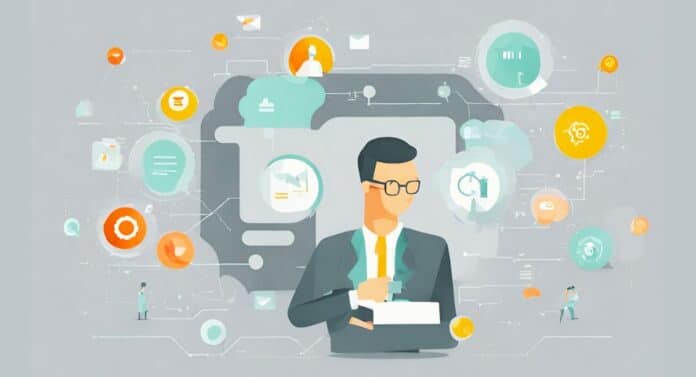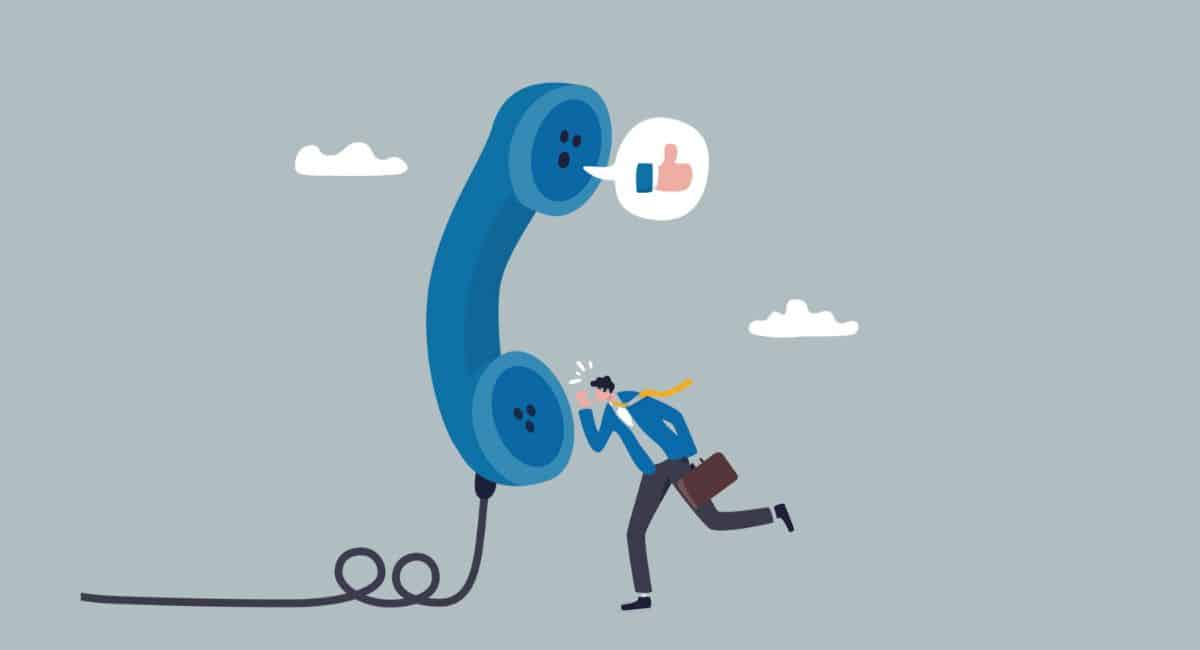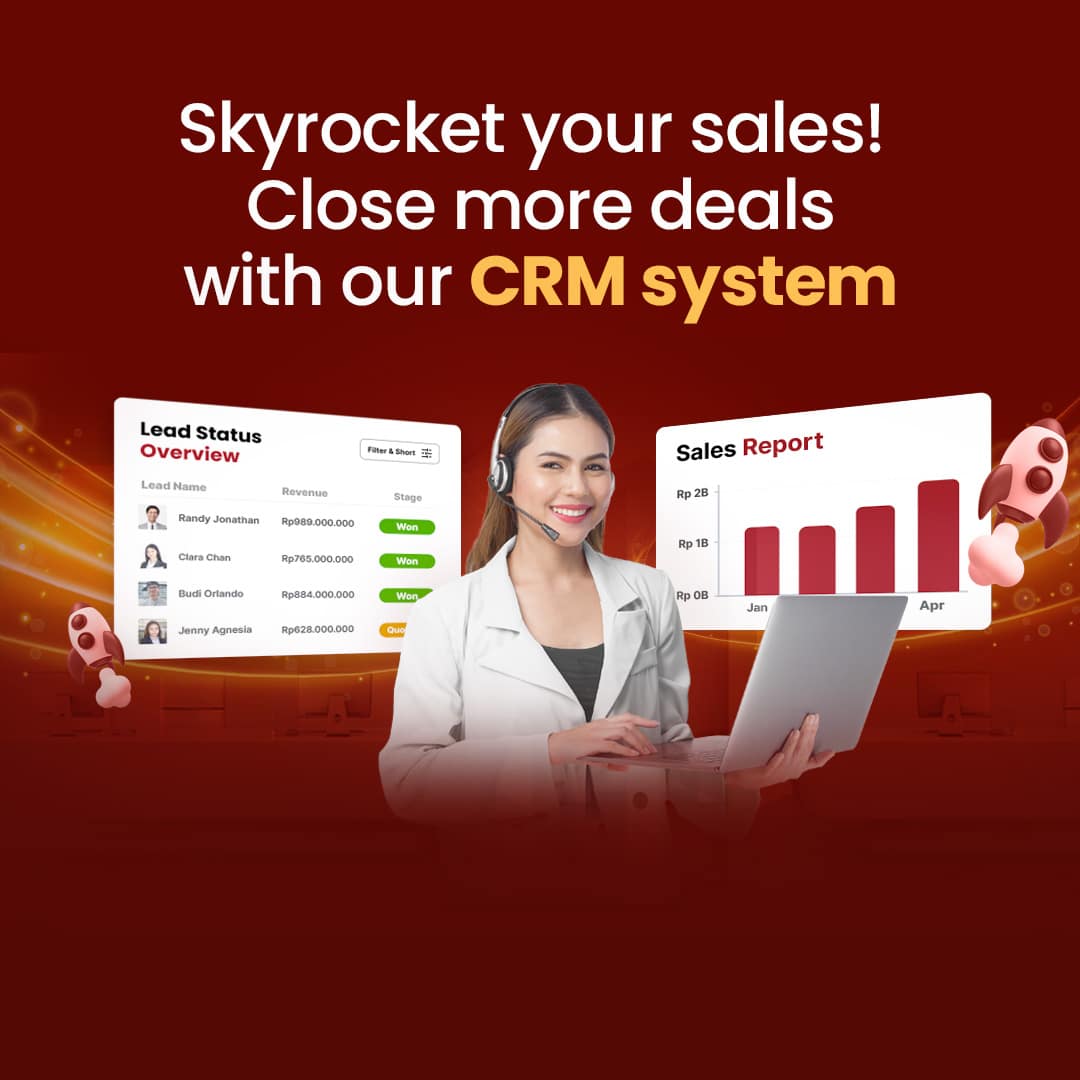Ever considered how many customers might switch to rivals because their needs weren’t fully understood?
Imagine a business application that deeply comprehends your customers’ core requirements.
In Singapore’s business world, owners understand that customers are priceless assets. They’re not just buyers; they’re pivotal partners in our journey to success. Prioritizing their satisfaction yields extraordinary outcomes—more loyal customers, increased transactions, and positive referrals.
So, how do you effortlessly boost customer satisfaction? How does your business lead in Singapore’s market with unparalleled service?
The answer: CRM systems! Explore more in the article below.
Key Takeaways
|
Table of Content:
Table of Content
Understanding CRM and CRM System
What exactly is meant by CRM and its system? Firstly, Customer Relationship Management, abbreviated as CRM, refers to an approach that focuses on maximizing customer satisfaction, building strong relationships, streamlining processes, and enhancing profitability.
Now, CRM system or Customer Relationship Management software is the tool or application designed to assist companies in managing interactions with customers. The features of a CRM system are tailored to meet a company’s unique needs in serving its customers. Discover more about the various CRM features available in this article.
Benefits of Using a CRM System
Implementing CRM brings substantial benefits. Let’s delve into some of the key benefits and functionalities of CRM software:
1. Enhancing customer retention
Employing a CRM system is comparable to having a trusted confidant who comprehends your customers’ needs. With analytical capabilities, CRM can track customer preferences, allowing for a personalized experience.
This enables businesses to respond promptly to changing preferences, offering tailored solutions for an ongoing satisfactory customer experience. Consequently, this helps retain existing customers, fostering stronger relationships and sustainable business growth.
2. Better customer data analysis
A CRM system functions as an investigative tool, assisting in analyzing existing data. It aids companies in effectively managing customer data, encompassing purchase histories and preferences.
Leveraging this data, the system conducts comprehensive analyses of customer behavior and market trends. This understanding enables wiser decisions in product development, adjustments in marketing strategies, and customer service improvements.
3. Monitoring employee performance based on KPIs
Utilizing a CRM system is akin to having a vigilant eye continuously monitoring business performance. It tracks every customer interaction, identifies sales trends, and analyzes data to understand consumer behavior.
This not only ensures customer satisfaction but also provides insights for effective marketing strategies. This capability allows measuring ROI, identifying growth opportunities, and addressing weaknesses that need improvement.
Read the related article: What is ERP and Why is It Important for Businesses?
4. Identifying market trends
Apart from focusing on customers, a CRM system aids in identifying market trends. Its benefits are comparable to having a compass guiding through the ever-changing business landscape. This tool is crucial in navigating changes accurately and devising business strategies aligned with fluctuating market conditions.
Implementing CRM enhances operational efficiency. Understanding the specific benefits of each CRM type enables intelligent choices for building robust customer relationships and achieving competitive advantage.
5. Higher sales process efficiency
CRM’s role includes better tracking and managing customer data, expediting the sales process, and offering comprehensive visibility into the sales pipeline. Organized customer information allows the sales team to identify opportunities faster, offer tailored solutions, and maintain regular communication.
This enhances sales team productivity, saves time, and ultimately boosts company revenue, proving highly beneficial for various sales strategies.
So, what types of companies truly need CRM software? Here’s a complete explanation:
Types of Companies Benefiting from CRM System
-
Business-to-Business (B2B)
A type of company that greatly benefits from a CRM system is the Business-to-Business (B2B) enterprise. B2B focuses on selling products or services to other businesses rather than individual consumers. Thus, data exchange with their B2B customers is the way they carry it out instead of with individual consumers.
Within the realm of B2B, there exist several subcategories. But which specific B2B companies need CRM software?
Direct Sales
Direct sales companies, operating within the B2B sector, provide products or services directly to customers via salespersons or agents. For these businesses, CRM is fundamental to their success.
Why? Because this CRM system efficiently manages their list of potential customers, optimizing sales opportunities. Industries within direct sales that benefit from CRM to maximize their sales encompass:
- Insurance
- Office equipment
- Advertising
- Banking
- Distribution
These industries rely on CRM software for managing potential prospects and customers, leveraging features like:
- Customer database management
- Prospect tracking
- Creation of sales offers and orders
- Customer segmentation analysis
- Sales forecasting
- Mobile CRM applications
- Sales team performance tracking
- Sales analysis
Farmer Sales
Are you among the companies employing a farmer sales strategy? Here are the industries that employ the farmer sales strategy and benefit from CRM:
- IT Services (Information Technology)
- Telecommunications
- Shipping and Logistics
Why do they need this CRM system? Primarily for its RFM features, which are instrumental in retaining and extending business relationships with existing customers. With RFM features, customers can be ranked and grouped using visual RFM data graphs, aiding companies in planning better interactions.
For those interested in optimizing customer management and boosting business performance through an integrated CRM system, you can access the Hashmicro price scheme by clicking on the image below!
-
Omnichannel
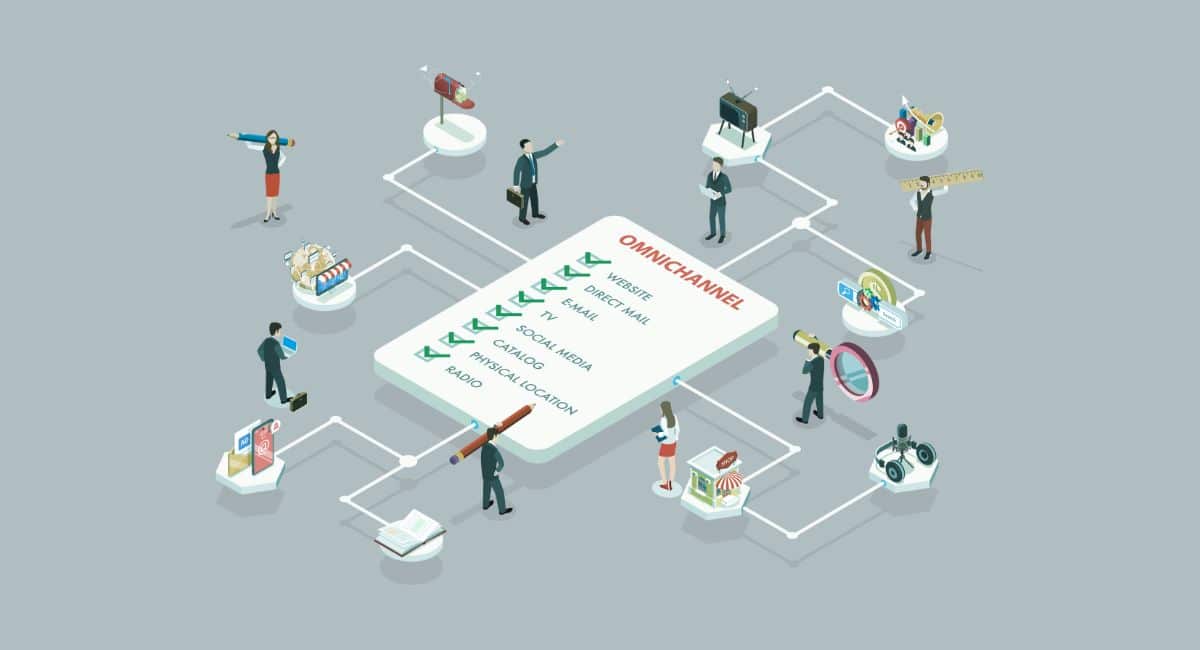
Numerous businesses adopting this approach rely on CRM systems to fortify enduring customer relationships, offer personalized experiences, and bolster brand loyalty among customers.
However, it’s important to note that relying solely on CRM for managing an omnichannel business isn’t sufficient. To optimize company operations and enhance customers’ buying journeys, other systems like accounting and inventory management become essential.
But does each aspect need separate systems? Not necessarily.
An integrated Enterprise Resource Planning (ERP) system harmonizes various functions, including CRM, accounting, and inventory management, tailored to the company’s requirements.
Is your company employing an omnichannel strategy? Typically, industries employing an omnichannel business strategy that benefit from ERP systems are companies in the following sectors:
- FMCG (Fast-Moving Consumer Goods)
- Retail
- F&B (Food & Beverage)
These industries leverage integrated ERP systems to refine customer experiences and streamline sales processes. CRM is used, leveraging features such as:
- Stock integration across all sales channels
- Customer data management in online and physical stores
- and much more
With the use of CRM systems, you’ll bid farewell to customer dissatisfaction.
Things to Consider When Choosing a CRM System for Your Company
The selection of CRM software is a significant stride toward improving operational efficiency and reinforcing customer connections. Yet, akin to selecting a life partner, numerous considerations must be weighed before settling on this software. Here are the crucial aspects to contemplate when choosing a CRM system:
- Defined Business Objectives
Before navigating the intricacies of CRM system selection, grasp your current business objectives. Are you striving to boost sales, strengthen customer bonds, or refine customer service? Clarity in objectives will direct you toward the fitting CRM solution.
- Scalability
Aspire for your company’s growth, right? Ensure the CRM you opt for can expand in line with your company’s progress, accommodating more users, customers, and additional functionalities.
- User-Friendly Interface
Even the most advanced CRM system proves ineffective if your team finds it challenging to use. Prioritize systems featuring a user-friendly interface and comprehensive training support.
- Seamless Integration with Other Tools
A reliable CRM system seamlessly integrates with other applications such as accounting systems or inventory management, enabling smooth data flow across the organization.
- Robust Analytics and Reporting Capabilities
The chosen CRM should serve as a valuable data repository. Look for software equipped with robust analytical tools and reporting capabilities to facilitate informed decision-making based on data insights.
Interested in delving deeper into optimal CRM software selection strategies, top recommendations, and real-world examples of successful customer relationship management? Dive into our comprehensive article: 15 Best CRM System for Singaporean Businesses in 2024.
CRM: The Secret to Your Company’s Success!
The CRM (Customer Relationship Management) system stands as a cornerstone in your company’s triumph. Recognizing the merits of employing CRM software is a shrewd move for any business professional. Through this system, you can amplify customer contentment, harness sophisticated data analysis capabilities, and attain heightened operational productivity.
As a business proprietor, contemplating the integration of a tailored CRM system aligned with your business requisites can profoundly elevate operational efficiency and steer substantial growth.
If delving deeper into CRM software intrigues you, seize the chance to schedule a free demo! It’s an opportunity to explore its potential and alignment with your business objectives for unparalleled success.
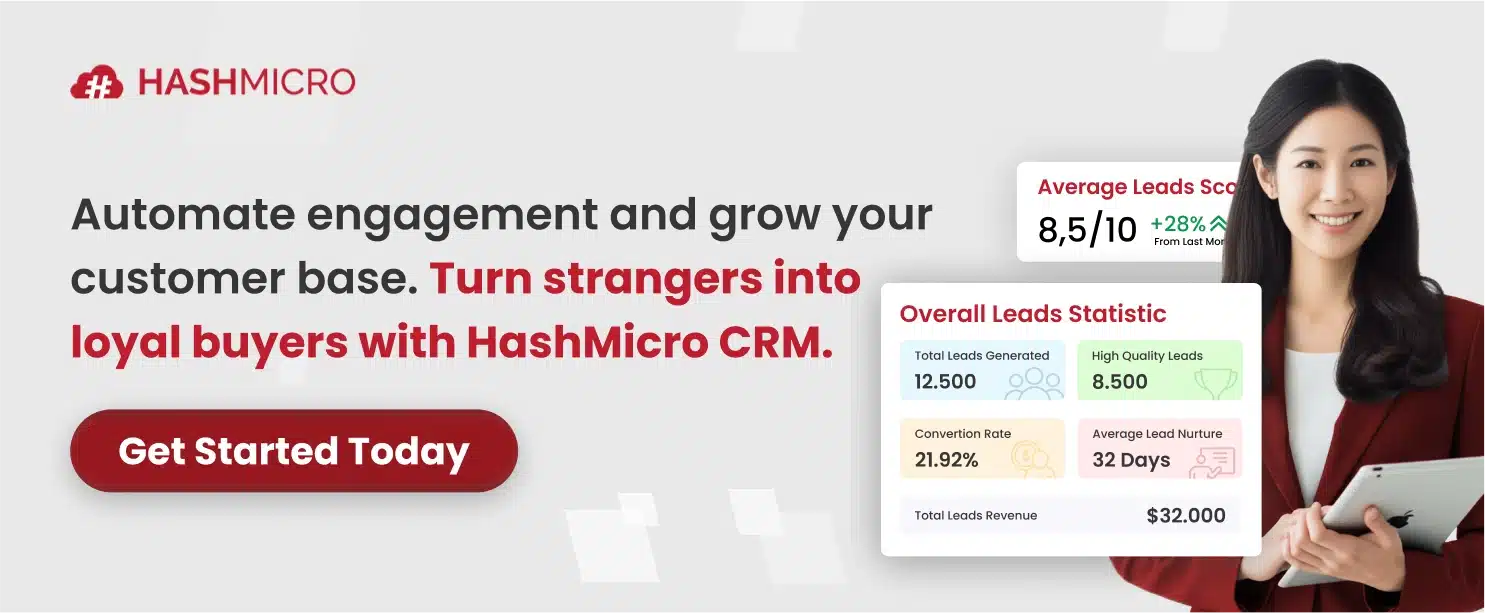
Frequently Asked Questions About CRM Software
What are the key aspects found in CRM?
Operational CRM provides support to front office teams like sales, marketing, and services. Each customer interaction is typically logged in customer contact records, and staff can access and update customer information from the database as needed.What happens if a company doesn’t implement CRM?
Without CRM, employees would manually input data, ultimately making it difficult for others to access. A company’s inability to leverage customer data is a key indicator that implementing a CRM system is necessary.What are the drawbacks of using CRM?
There are several drawbacks to using CRM systems, including: 1. Diminished human element within the company. 2. Potential security constraints. 3. Need for training. 4. Technical support. 5. Potential data loss.How to implement a CRM system?
Steps for implementing a CRM system include: 1. Establishing the company’s vision and goals. 2. Formulating business strategies. 3. Enhancing customer communication. 4. Reviewing and evaluating existing business data. 5. Selecting an appropriate CRM system.How can CRM applications help companies improve customer satisfaction?
CRM holds the capability to fortify trust by storing vital customer information accessible at any future time. Customers with repeated interactions bring additional benefits as each interaction gets recorded, enabling future analysis.



